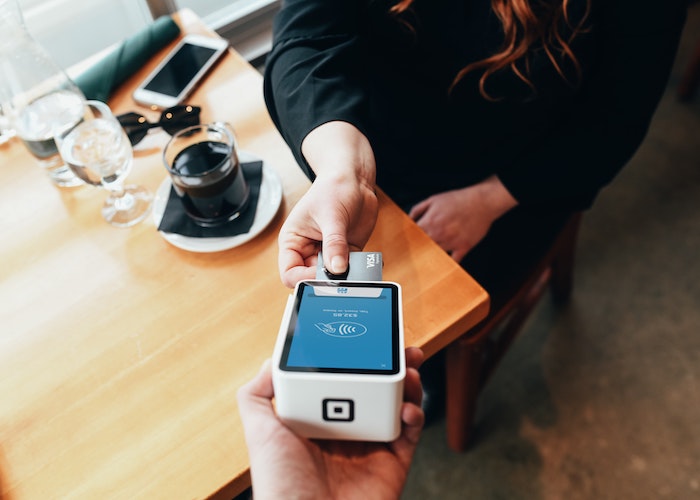How My Credit Score Went Down -272 Points After Paying Off My Cards (& What To Avoid)
So my credit score went down 272 points when I paid off my cards
Nope, you didn’t read that wrong. For a while, I thought the app (CreditKarma) where I tracked my credit score, was glitched. For a year, I would take these drastic hits to my score for things that were seemingly good as a multiple cardholder. I made more money, so I paid more money towards my card balance.. I even kept a ton of cards at a “zero” balance and even closed a few. I updated all of my credit card profiles to reflect my salary increase, to win the favor of the creditors.
And yet, every month, I’d wake up to an email telling me to check my new score, as there have been “changes made to my account.” I thought, “No way. This app is crap. It’s lying.” Then I contacted Equifax and Transunion to find confirm the numbers, and it was true.
So just in case this is happening to you (or to avoid it happing to you), here are three things not to do, to better your credit — and what to do instead. Some of you may already know these things. However, for those who don’t, well, let’s just say I took that loss, so you wouldn’t have to, my friends.
1. Keeping My Cards Zeroed Down For Extended Periods Of Time
Credit Score Points Lost: -78
Yes, it’s good to pay off your balance and full. No, it’s not ideal to keep the balance at “0” for months at a time.
What I did wrong: It’s Credit Repair 101; if you’re in the position to do so, pay off your entire balance, monthly. Ultimately, this means bringing your balance down to zero dollars, and spending on your card all over again. The more you spend and pay off in full, the better your chances are for having your credit line increased by the card company, as well as increasing your odds of having your credit score go up.
However, I soon learned that you must play to pay — and play again. In this case, play = spend money.
When I first started my journey to better my credit score, I had four cards — one card from my major bank, one from a major airline (a Jetblue Mastercard), a semi-sketchy card (Credit One) that I was pre-approved for during a time of desperation years ago, and a store card that I no longer used, but kept open. I immediately paid off my store card in full and I only kept the Credit One card one because they had since raised my limit to a few thousand dollars. However, I kept it at zero balance and never used it. I considered it my “emergency” card.
I was advised to keep my major bank card and Jetblue Mastercard, active. Unfortunately, I thought active simply meant “open.” So I zeroed down all of my credit cards by bringing the balance down to “0” and went ahead with only spending — and paying off in full — my Jetblue card because I traveled with them so much, and I enjoyed the points and perks earned.
Unfortunately, I found out that keeping a zero-balance while not using your other cards places them at risk for being automatically closed.
When the credit-card company closes your card, it lowers your overall credit limit and increases your credit utilization by default, which ultimately lowers your credit score. When I woke up one day to find my bank card closed for “under-utilization,” I also went to my credit score app and realized my score took a massive hit of nearly 80 points.
2. Closing My Cards Too Fast
Credit Score Points Lost: – 93
3. Not Spending Enough On My Cards
Credit Score Points Lost: -101
Sounds insane, right? So let me explain. When I finally got in a position to pay off all my cards, as you already know, I closed a couple of cards. I took a major loss for that. But I was able to get my score back up, after requesting an increase in my credit line for my other card and getting approved. Plus, with time, the scores went back to normal since I relatively had no debt, and I also cleared up a small item in collections.
What I did wrong: I remember being told by a credit expert to make sure I only utilize 30% or less of my credit limit. Here is the thing. My silly self thought they meant that I should, at all times, only use 30% of my actual card balance. This means, for example, if one of the two major cards I was using had a limit of $7,500, I thought I was being smart by only spending about $2000 of that limit, at all times, and paying $2000 off monthly.
I know, I know. Everyone, forgive me for my foolishness at the time. To be fair, I never grew up with any knowledge of credit or credit cards. I was always a cash person, assuming that cash allowed better control and discipline on how I spent my funds. I also heard too many stories about the lure of credit cards and credit card debt, and always wanted to avoid it. I thought, “I’ll worry about my credit and getting a major card once I’m ready to buy a house or get married because then you’ll need it.” Yea, no.
My favorite card automatically lowered my revolving credit by half, as a result of my non-spending habits.
Anyway, my favorite card that I took so much pride in, on building up, automatically lowered my revolving credit by half, as a result of my non-spending habits. They said they didn’t see the point of me having or needing a higher line.
Ironically, I was keeping my expenses low, on purposes, and still paying cash for everything, to satisfy the “misinterpreted” goal of <30% card utilization. I thought, between doing that, plus them having my salary on file, as well as my “good score,” that they would magically reward me with another increase.
Nope! The worst part is, my credit score went down by over a hundred points. Yikes! I got this fixed by talking to the company and explaining to them my “newness” to the space, and the misunderstanding. They brought my credit limit right back up. Unfortunately, my score never fully went back up +101 points. It went back up about half of that.
What to do instead: As advised by the card expert on the phone, use your card for everything. Pay for everything on your card, and just pay it off monthly, with the cash you should have, from not spending nearly as much cash, on hand. That can be tough for me, as I’m still “iffy” about swiping my card everywhere; I’ve had fraud at gas stations a lot. Plus, living in New York City, you can still get a “no-tax” deal if you pay cash for certain things, and I love to save a few bucks in a city where the tax is 9%). However, it’s what is best!
*****
In short, I strongly advise you to not be so quick to “throw your money,” at a problem, before actually looking into the solution. Had I known some of these things at the beginning of fixing my credit, I would’ve started using my cards sooner, paying off my balance and full, and so forth. In the end, I’m happy to have repaired my credit, and I look forward to taking it to the next level in score!
Image via Unsplash






